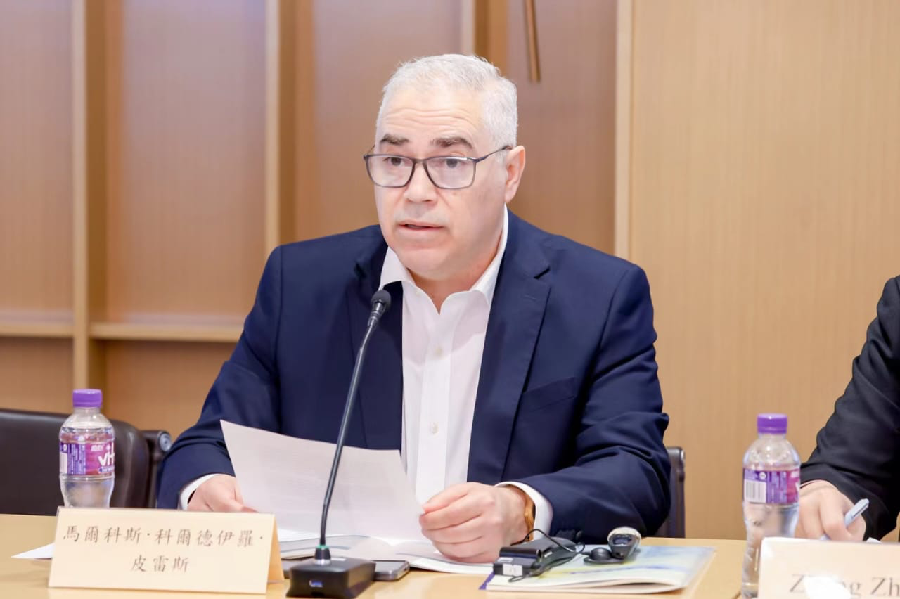


Photo provided to Guangming Daily.
The 3rd Plenary Session of the 20th Central Committee of the Communist Party of China (CPC) highlighted several significant aspects that deserve a deeper look. Among the many points addressed was the CPC’s ability to objectively interpret reality, identify challenges, and seize opportunities in an increasingly complex and challenging international context. Also commendable is the collective competence of the CPC in planning and achieving set goals. A clear example is the “Made in China 2025” initiative, which has seen impressive results in areas such as advanced manufacturing, information and communication technologies, artificial intelligence, and clean energy. The modernization of the country’s governance system and capacity, proposed in the “Decisions of the Third Plenary Session” (“Decisions” hereinafter), aims to further enhance political and economic management.
Another crucial aspect of the Decisions is its emphasis on seven priorities: developing whole-process people’s democracy, building a country with a strong socialist culture, improving people’s quality of life, and constructing a more beautiful, peaceful, and secure China, all with the aim of enhancing the well-being of the people. The Decisions makes it clear that China is committed to advancing high-level industrialization, reshaping rural-urban relations, and promoting ecological civilization, with a strong emphasis on the harmonious coexistence between man and nature. In this regard, the Xiong’an New Area serves as a prime example.
Since 1949, the CPC has led the Chinese people towards economic and social progress. The ability to critically analyze reality, correct courses, and point to the future has been essential in this process. The CPC’s pragmatism, effectively seeking truth from facts, has been a notable characteristic. Marxism, as its theoretical compass for action, has been continuously refined in the face of real-world challenges and new contradictions. The 3rd Plenary Session has created a new horizon for coordinating the actions all Party members towards the overall objectives set at the meeting. The Chinese people have been called upon to think about the future, review their practices, and advance in political participation to build a modern, just, and beautiful China.
China’s openness brings stability and prosperity to the world
The Chinese government’s stance on maintaining the process of opening up and reform is an important signal to the international community, which is engulfed in regional conflicts, protectionism, unilateralism, and climate crises. Brazilian experts believe that the new guidelines will result in an open China better integrated into the global economy, which by itself is injecting stability and prosperity into the world. Chinese companies are internationalizing their production chains and bringing technology to developing countries. The Belt and Road Initiative continues to be the only initiative offering countries of the Global South the necessary investments to increase productivity and create new jobs. In Brazil’s case, it is important to highlight the role of a new wave of investments in the field of clean energy and electric vehicles. The natural and technological conditions make Brazil an important partner for China in building a new and sustainable energy matrix.
While Western countries try to protect themselves from international competition and create restrictive industrial policies for foreign investment, China is moving in the opposite direction. It is the only major country in the world that organizes events to promote imports, such as the China International Import Expo (CIIE), the China International Fair for Investment and Trade (CIFIT), the China International Fair for Trade in Services (CIFTIS), and the Global Digital Trade Expo. As I mentioned earlier, China’s openness ensures opportunities for the Global South to expand their exports, incorporate new technologies, and increase their productivity.
Endless potentials of win-win cooperation between China and Brazil
With President Lula’s return to power in January 2023, Brazil-China relations have returned to their highest level in the past seven years. At the last meeting of the China-Brazil High-Level Coordination and Cooperation Committee (COSBAN), ties were strengthened with the announcement of several initiatives in trade, finance, investments, and technical-scientific cooperation.
Brazil is likely to sign the Memorandum of Understanding to join the BRI in November. Brazil seeks investments in the new PAC (Growth Acceleration Program) and the country’s reindustrialization, particularly in the renewable energy sectors, solar panels, wind rotors, green hydrogen, hybrid cars, and information and telecommunications technology equipment. Brazil’s new legal framework for foreign investments guarantees greater predictability for companies and also for states and municipalities for public-private partnerships. The relationship between Brazil and China has great potential for shared gains, regardless of geopolitical pressures.
Contributed by Marcos Cordeiro Pires, Associate Professor of International Political Economy, São Paulo State University (Unesp), Brazil
点击右上角![]() 微信好友
微信好友
 朋友圈
朋友圈

请使用浏览器分享功能进行分享
